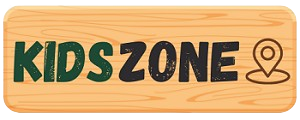Hand washing is a very basic habit which helps save our health, especially to young learners who explore their world with all curiosity and enthusiasm. Teaching the importance of hand-washing to preschoolers can be fun yet very effective when done the right way. Here are the practical ways to help you instill in your little ones this important habit.
1. Making Use of Visual Aids
Visual supports may work well with younger children. Create a colorful poster or chart that shows images of the steps involved in the hand-washing process. Include clocks, pictures, or stickers in order to remind children when hand-washing should occur: before mealtimes and after toileting and outdoor play. You might even be able to locate videos or apps available for cell phones or tablets that are specifically designed to help young children learn about the importance of hand-washing.
2. Teach About Germs and Illness
Help your child understand what germs are and how they might make him sick. Use simple and age-appropriate language: “Germs are tiny things we cannot see but which hurt our bodies. Washing our hands helps to keep them away.” Don’t scare them with too much information, but let them know hand-washing is something that will help keep them healthy and feeling fine.
3. Be a Good Role Model
Children learn so much just by watching the adults around them. If you want your child to wash their hands and do it often, you’ve got to model that behavior by doing it, too. Demonstrate it by showing your children how you do it correctly. Let them know you are washing your hands and describe every step as you do it. Your child may not completely understand the importance of the points mentioned above immediately. Seeing you wash your hands reinforces the routine and provides clear motivation to continue.
4. Establishing a routine
Establishing a routine can help kids remember to wash their hands. As with adults, try to work handwashing into routines around mealtimes, after outdoor play, and at other key times consistently. Help them get into the routine with you before mealtimes and maintain that washing hands is just another routine, the same as brushing one’s teeth or getting dressed.
5. Positive Reinforcement
Praise your child and motivate them to do so with rewards each time they wash their hands properly. You could have a sticker chart where you monitor their progress; in cases of hand-washing habit continued over 21 days, give them small rewards. By reinforcement of succeedings, teachers manage to assist the child in building his/her confidence and reinforcing the importance of the habit.
CONCLUSION
Teaching preschoolers why they should wash their hands is more than just a health lesson; it is a lesson toward a lifetime of habit in keeping healthy and safe. Sparking joy through fun, involvement of the child, and consistent reinforcement with positive appreciation will indeed offer the preschooler good hygiene practice.
Remember children learn through experience and by the regularity of a practice and a routine. Patience and creativity will add to your child’s everyday experience so that soon they will come to know why handwashing is important to them and their health.
You will not only bring awareness to your child on the importance of washing your hands but also create within them a form of responsibility for their health. So let’s roll up our sleeves, suds up our hands, and have some serious fun learning about handwashing with your kid!



